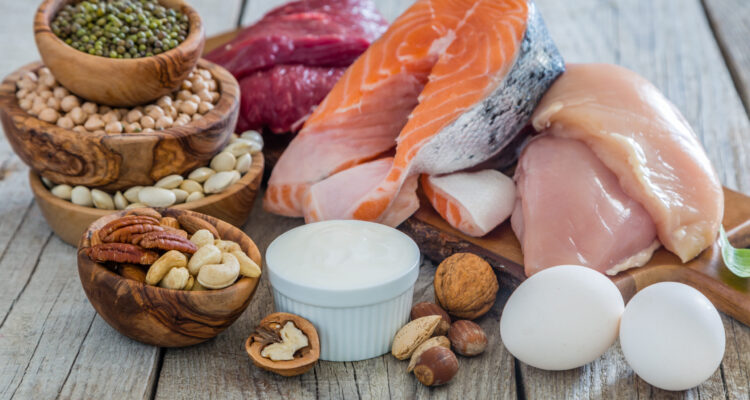
In the pursuit of a healthy and balanced lifestyle, the significance of adequate high-quality protein cannot be overstated. At the heart of optimal nutrition stands a crucial macronutrient – protein. Beyond its muscle-building reputation, high-quality dietary protein plays a multifaceted role in promoting overall health and well-being. Let’s explore the profound benefits that this nutritional powerhouse brings to the table.
1.Muscle Maintenance and Growth
Perhaps the most well-known benefit of protein is its role in preserving lean body mass, muscle maintenance and growth. Proteins are composed of amino acids, the building blocks of tissues, and are essential for repairing and building muscle fibers. Whether you’re an athlete aiming to enhance performance or an individual seeking to maintain muscle mass, a protein-rich diet is paramount to preserving lean body mass and optimizing metabolic activity and functional fitness.
2. Metabolic Boost:
Protein has a higher thermic effect compared to fats and carbohydrates, meaning it requires more energy to be metabolized. This thermogenic effect contributes to an increased calorie burn during digestion, supporting weight management and potentially aiding in fat loss.
3. Satiety and Weight Management:
Including high-quality protein in your meals can enhance feelings of fullness and satiety. This not only helps in curbing unnecessary snacking but also contributes to better weight management by reducing overall calorie intake. It’s a valuable ally in the quest for healthy body composition.
4. Blood Sugar Regulation:
Protein plays a crucial role in stabilizing blood sugar levels. When consumed in conjunction with carbohydrates and fiber, it slows down the absorption of sugars, preventing rapid spikes and crashes in blood glucose. This is particularly beneficial for individuals managing or preventing conditions like diabetes.
5. Bone Health:
Beyond its association with muscles, protein is a key player in maintaining bone health. Collagen, a protein abundant in bones, provides structural support. Consuming an adequate amount of high-quality protein supports bone density and reduces the risk of osteoporosis.
6. Immune System Support:
Proteins are integral to the production of antibodies and immune system cells. A diet rich in high-quality protein helps fortify the body’s defenses, aiding in the prevention and recovery from illnesses.
7. Wound Healing and Tissue Repair:
The amino acids derived from protein are essential for the repair and regeneration of tissues. Whether healing from an injury or recovering from surgery, a protein-rich diet accelerates the healing process and promotes optimal tissue repair.
8. Healthy Skin, Hair, and Nails:
Collagen, elastin, and keratin, all crucial for maintaining healthy skin, hair, and nails, are proteins. Including high-quality protein sources in your diet provides the necessary building blocks for these structural components, contributing to a vibrant and youthful appearance.
9. Mood and Cognitive Function:
Amino acids from dietary protein are vital precursors to neurotransmitters, the chemical messengers in the brain. Consuming sufficient protein supports optimal cognitive function, mood regulation, and may even play a role in preventing mental health issues.
10. Heart Health:
High-quality protein sources often come with other heart-healthy nutrients. For example, fatty fish, a protein-rich source, provides omega-3 fatty acids that promote cardiovascular health. A diet rich in lean proteins, especially plant-based like nuts, whole grains and legumes can contribute to maintaining healthy blood pressure and cholesterol levels.
In conclusion, the benefits of high-quality dietary protein extend far beyond the realm of muscle building. From supporting weight management to fortifying the immune system and promoting optimal bone health, protein stands as a foundational pillar of overall wellness. To unlock these benefits, prioritize a diverse and balanced diet that includes lean meats, fish, dairy, eggs, legumes, and plant-based protein sources. Remember, when it comes to achieving and maintaining good health, protein is not just a supplement but a vital and delicious component of a thriving lifestyle.



